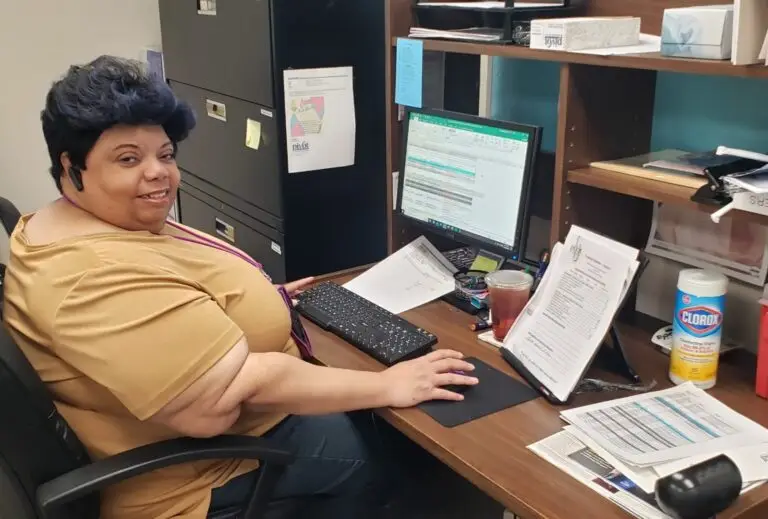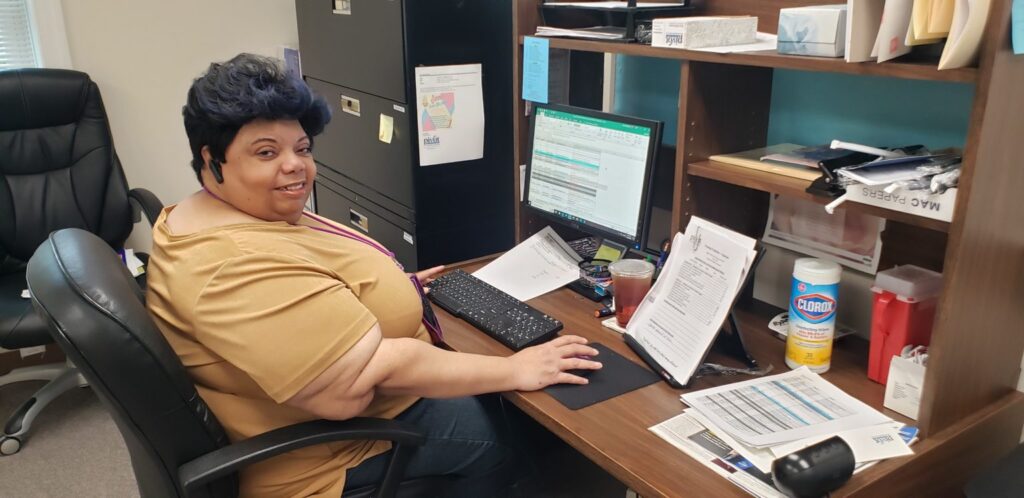Entrepreneurship Program for Women in Texas Gets Boost from Grant
 (Photo courtesy of Jacob Lackey)
(Photo courtesy of Jacob Lackey)Published: August 15, 2022
Sometimes things start with one person who is really passionate, and then they take off from there.
That’s Lydia Tate’s opinion at least.
She’s seeing it happen at Christian Women’s Job Corps of McLennan County, Texas, where an already-thriving ministry has moved to the next level thanks to a college student volunteer and a program development grant from WMU Foundation.
Tate, director of the CWJC site, said the idea for their new entrepreneurship program started in early 2020 when she spoke to a business class at Baylor University. One student — Jacob Lackey — was particularly interested in the mission and vision of the CWJC site and wanted to see how he might help.
Seeing, responding to a need
“Afterward he came up to me to talk about entrepreneurship and the vision he has for bringing those skills to the community,” Tate said. “He offered to volunteer and bring his knowledge in entrepreneurship to the program. He offered to bring a curriculum to us to teach this concept to our women.”
Lackey had started his first successful business at 14 and gave a TEDx Talk about it at 16.
“I see this need, I want to meet it and I’m passionate about it,” he said.
He said he wanted to be able to share with the women at CWJC of McLennan County that it’s OK to have challenges and barriers against starting a business — he experienced that uphill battle as a teenager.
But it’s doable if someone is passionate, Lackey said.
“Only 30 percent or so of entrepreneurs have a high school diploma,” he said. “It’s not a field dominated by people with doctorates.”
So in spring 2020, Lackey led a three-day workshop via Zoom for students at the CWJC site to teach them about entrepreneurship, evaluate their own ideas and see if they had the expertise and passion to get started in their own business. He also gave them resources to plan their next steps.
“I loved seeing how engaged the women were and the ideas they already had,” said Lackey, who is now a Baylor graduate and member of the CWJC of McLennan County board of directors.
‘Wildly successful’
Tate said the workshop was “wildly successful — everybody loved it.”
The grant will be seed money to start wrapping some structure around the idea, she said.
“Essentially what we would like to do was to start a program where a student will come in and take a host of classes given by volunteers in the community. They will learn about marketing strategies, digital spaces, brick-and-mortar spaces and how those happen,” Tate said. “They will learn about everything from what does it look like to have a business all the way to launching a business.”
CWJC would also have student interns who would have hands-on learning opportunities through running an online shop modeled after Woman’s Missionary Union’s WorldCrafts space, she said.
“Those interns would complete a year with us from September to May, then apply for a micro loan to start their own business,” Tate said.
“Our goal is to fund those micro loans and those opportunities so that a woman can start with us not knowing anything about a business to starting and funding a business. That’s the hope, and WMU Foundation has created a space for us to start dreaming about that.”
The entrepreneurship program is part of the site’s GLOW (Growth Learning Opportunities for Women) program, which offers free job skills and career building workshops and classes.
Tate said they hope through the entrepreneurship program to “really and truly empower women to start their own businesses and have some ownership over their income.”
by Grace Thornton, writer for The Baptist Paper



